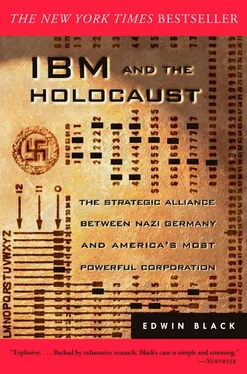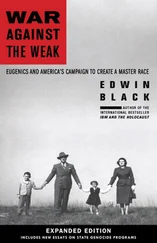Watson was a conqueror. From simple merchandise inauspiciously sold to farmers and townsfolk in rural west-central New York, Watson would go on to command a global company consumed not with mere customers, but with territories, nations, and entire populations. He would identify corporate enemies to overcome and strategies to deploy. Like any conqueror, he would vanquish all in his way, and then demand the spoils. Salesmanship under Watson would elevate from one man’s personal elixir to a veritable cult of commercial conquest. By virtue of his extraordinary skills, Watson would be delivered from his humble beginnings as a late-nineteenth-century horse-and-buggy back road peddler, to corporate scoundrel, to legendary tycoon, to international statesman, and finally to regal American icon—all in less than four decades.
Although born into a clan of tough Scottish Watsons, the future captain of industry was actually born Thomas J. “Wasson.” His Protestant father, a brawling, scowling lumberman of little religious tolerance, was so opposed to having Catholic in-laws in the family, he changed his name to Wasson, just to disassociate. Eventually, the family let the protest drop and re-adopted the Watson name. Thus, young Tom could be a genuine Watson. 37
Growing up in the Finger Lakes town of Painted Post offered few choices to the ambitious, young Watson. To escape a life of working the family farm and running horse teams pulling river barges, Watson declared early he would become a teacher. He even obtained his teaching certificate. But after just one day on the job, the impatient Watson confessed, “That settles my teaching career. I can’t go into a schoolroom with a bunch of children at nine o’clock in the morning and stay until four.” 38
Watson wanted to dive into commerce. He began by peddling sewing machines and pianos on the road for a store in town. He had to provide his own horse. When his more experienced road partner drifted away, Watson took over—and did better. Even when economic times hardened, Watson learned to find lodging with befriended farmers, barter goods, and push on despite rain-flooded roads and every other adversity. Despite his admirable results, Watson’s salary was generally $10 per week. Before long, he quit and looked elsewhere. 39
Quickly, Watson learned that some sales positions offered something called a commission, that is, a cut. He joined a building and loan association in Buffalo where he sold shares up and down the populated roads south of the city. Watson’s deal was straight commission. His manager was a slick and dapper operator who taught Watson how to smoothly sell stock in saloons, and how to always dress the role of a successful Gay Nineties businessman. Nothing drives glibness like a commission-only job. Watson excelled—and the feeling was invigorating. He loved to sell. 40
In 1895, at age twenty-one, Watson bumped into John J. Range, the manager of the Buffalo office of one of the most rapacious companies of the day, the National Cash Register Company. Nicknamed “The Cash,” NCR was the personal empire of the ruthless and belligerent tycoon, John Patterson. Patterson had created a sales manual designed to rigidly standardize all pitches and practices, and even mold the thought processes of selling. No deviation was allowed. Patterson’s way was the only way. Range was one of Patterson’s most successful sales supervisors, brutalizing and humiliating his underlings until they achieved their quotas. Range became a mentor to Watson. In no time, The Cash converted Watson into a youthful commercial mercenary. 41
Within months, Watson was the territory’s leading salesman, outearning Range himself, eventually becoming among the best Cash salesmen along the East Coast. His commissions reached as high as $100 per week. Patterson took notice, transferring Watson and his impressive skills to the undesirable Rochester office, one of the worst performing of The Cash’s 160 branch offices. Watson worked his magic immediately. On his very first day, while tying his horse to the hitching post in front of the National Cash Register office, Watson encountered the angry saloonkeeper next door. The irate neighbor complained that The Cash enjoyed a dismal reputation and the prior sales agent was often too drunk to perform his job. Within minutes, Watson had somehow convinced the disenchanted man to buy a new cash register. Watson sold a second cash register while riding out to another complaining prospect. 42
Patterson realized that Watson was good enough to go beyond simple sales. He was good enough to destroy the main competition in Rochester, the Hallwood Company, which also marketed a cash register. Adopting the brutal, anything-goes techniques of Patterson and Range, and adding a few devi-ous tricks of his own, Watson began the systematic annihilation of Hallwood, its sales, and its customer base. Tactics included lurking near the Hallwood office to spy on its salesmen and customers. Watson would report the prospective clients so “intimidation squads” could pounce. The squads would threaten the prospect with tall tales of patent infringement suits by NCR against Hallwood, falsely claiming such suits would eventually include anyone who purchased Hallwood machines. The frightened customer would then be offered an NCR machine at a discount. 43
Watson never missed an opening. A Hallwood salesman whom Watson had befriended one day mentioned that he was calling on a prospect the next day. In the morning, the Hallwood salesman arrived at the merchant’s location just as Watson’s horse and buggy was riding off, the sale in hand. Watson had risen at dawn and driven twenty miles to steal the account. Watson enjoyed the triumph so thoroughly, he bragged about the incident for years to come. Within a few years, Watson had virtually driven Hallwood out of Rochester. Later, Watson bragged that he had made Rochester “one of the best organized and cleanest territories.” 44
Patterson liked Watson’s style. The unscrupulous NCR president had learned to use frivolous libel and patent suits to drive his competition into submission. Watson could add a whole new dimension to the war against anyone other than Patterson who dared buy or sell cash registers—even second-hand NCR cash registers. John Patterson believed that cash registers were his God-granted domain and no one else’s. Watson would be the instrument of his hegemony. 45
In 1903, Watson was called to Patterson’s office and instructed to destroy second-hand dealers across the country. Although he had become a star in the Rochester office, Watson was still relatively unknown elsewhere. Patterson planted him in New York City, handed him a million-dollar budget, and asked him to create a fake business called Watson’s Cash Register and Second Hand Exchange. His mission was to join the community of second-hand dealers, learn their business, set up shop nearby, dramatically undersell, quietly steal their accounts, intimidate their customers, and otherwise disrupt their viability. Watson’s fake company never needed to make a profit—only spend money to decimate unsuspecting dealers of used registers. Eventually, they would either be driven out of business or sell out to Watson with a draconian non-compete clause. Funneled money from NCR was used for operations since Watson had no capital of his own. 46
The mission was so secretive even the NCR sales force in Manhattan believed that Watson had simply defected from the Rochester office to set up his own shop. He reported directly to Patterson and his staff. It took years, but the enemy—second-hand dealers—was ruthlessly conquered. 47
The victim list was long. Fred Brainin’s second-hand business was on 14th Street in Manhattan—Watson bought him out with a proviso that Brainin would stay out of cash registers. Silas Lacey of Philadelphia merged into Watson’s new front. The East Coast was easy. So Watson moved on to a real challenge: Chicago. 48
Читать дальше












